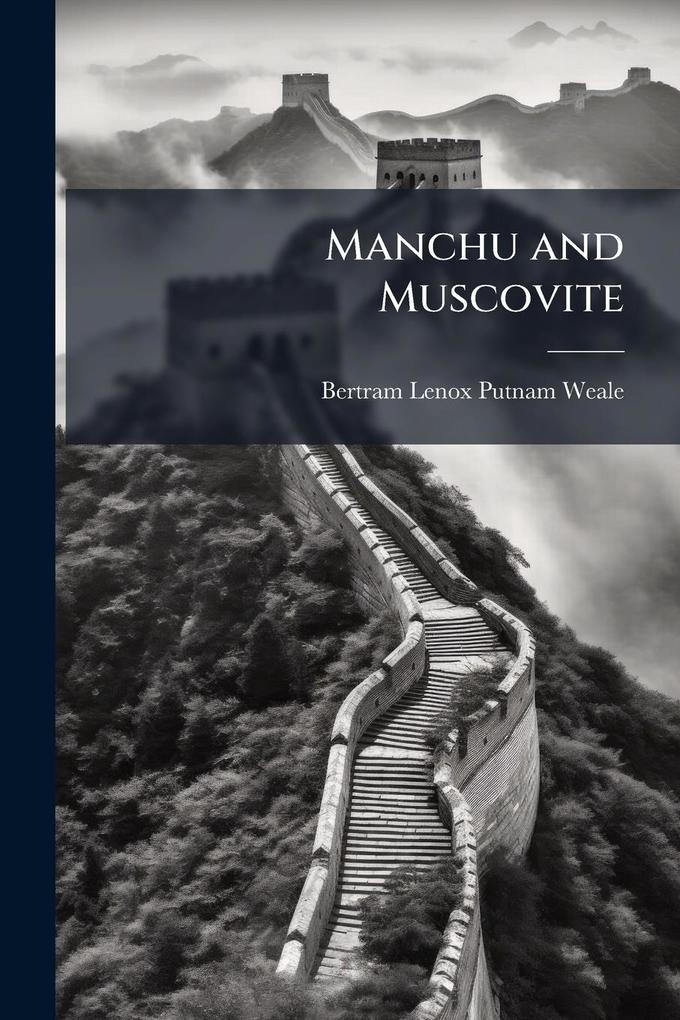
Zustellung: Do, 31.07. - Di, 05.08.
Versand in 2 Wochen
VersandkostenfreiBestellen & in Filiale abholen:
"Manchu and Muscovite" explores the complex relationship between the Manchu-led Qing dynasty in China and Tsarist Russia in the early 20th century. Bertram Lenox Putnam Weale delves into the geopolitical tensions, cultural exchanges, and territorial disputes that characterized this critical period in Asian history. The book offers insights into the ambitions of both empires, their interactions in regions like Manchuria, and the broader implications for the balance of power in Asia.
With meticulous detail, Weale examines the political maneuvering, diplomatic negotiations, and military conflicts that shaped the destinies of these two major powers. This historical analysis provides valuable context for understanding the dynamics of imperialism, nationalism, and international relations in the early 20th century. "Manchu and Muscovite" remains a relevant resource for scholars and readers interested in the history of China, Russia, and the interplay of Eastern and Western influences.
This work has been selected by scholars as being culturally important, and is part of the knowledge base of civilization as we know it. This work was reproduced from the original artifact, and remains as true to the original work as possible. Therefore, you will see the original copyright references, library stamps (as most of these works have been housed in our most important libraries around the world), and other notations in the work.
This work is in the public domain in the United States of America, and possibly other nations. Within the United States, you may freely copy and distribute this work, as no entity (individual or corporate) has a copyright on the body of the work.
As a reproduction of a historical artifact, this work may contain missing or blurred pages, poor pictures, errant marks, etc. Scholars believe, and we concur, that this work is important enough to be preserved, reproduced, and made generally available to the public. We appreciate your support of the preservation process, and thank you for being an important part of keeping this knowledge alive and relevant.
With meticulous detail, Weale examines the political maneuvering, diplomatic negotiations, and military conflicts that shaped the destinies of these two major powers. This historical analysis provides valuable context for understanding the dynamics of imperialism, nationalism, and international relations in the early 20th century. "Manchu and Muscovite" remains a relevant resource for scholars and readers interested in the history of China, Russia, and the interplay of Eastern and Western influences.
This work has been selected by scholars as being culturally important, and is part of the knowledge base of civilization as we know it. This work was reproduced from the original artifact, and remains as true to the original work as possible. Therefore, you will see the original copyright references, library stamps (as most of these works have been housed in our most important libraries around the world), and other notations in the work.
This work is in the public domain in the United States of America, and possibly other nations. Within the United States, you may freely copy and distribute this work, as no entity (individual or corporate) has a copyright on the body of the work.
As a reproduction of a historical artifact, this work may contain missing or blurred pages, poor pictures, errant marks, etc. Scholars believe, and we concur, that this work is important enough to be preserved, reproduced, and made generally available to the public. We appreciate your support of the preservation process, and thank you for being an important part of keeping this knowledge alive and relevant.
Produktdetails
Erscheinungsdatum
22. Mai 2025
Sprache
englisch
Seitenanzahl
652
Autor/Autorin
Bertram Lenox Putnam Weale
Verlag/Hersteller
Produktart
kartoniert
Gewicht
898 g
Größe (L/B/H)
234/156/33 mm
ISBN
9781023752138
Bewertungen
0 Bewertungen
Es wurden noch keine Bewertungen abgegeben. Schreiben Sie die erste Bewertung zu "Manchu and Muscovite" und helfen Sie damit anderen bei der Kaufentscheidung.









